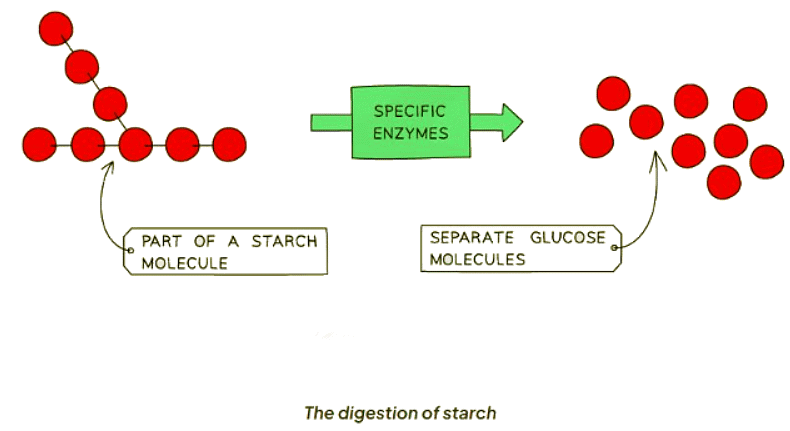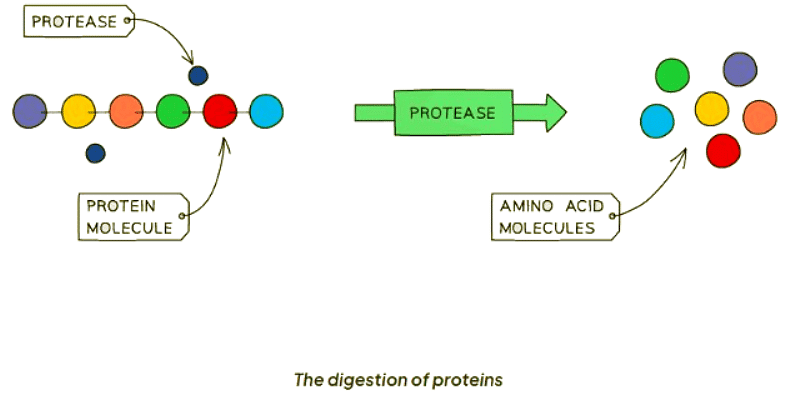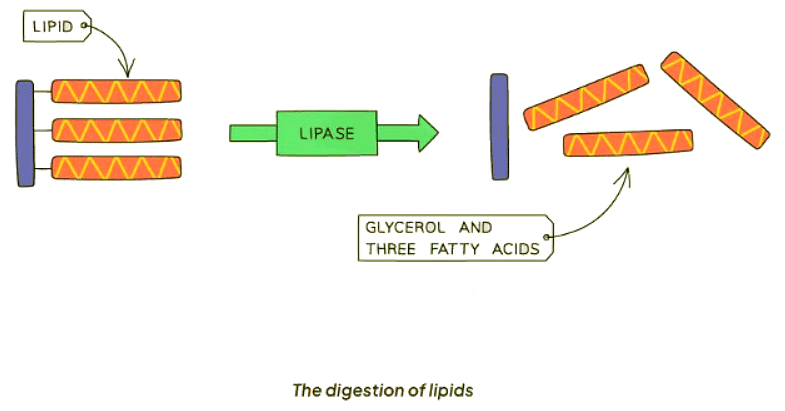Class 10 Exam > Class 10 Notes > Biology for GCSE/IGCSE > Enzymes in Digestion
Enzymes in Digestion | Biology for GCSE/IGCSE - Class 10 PDF Download
Amylases
- Amylases are produced in the mouth and pancreas (and secreted into the duodenum).
- Amylases break down starch into smaller sugars.

Proteases
- Proteases are a group of enzymes that decompose proteins into amino acids in the stomach and small intestine (with the enzymes in the small intestine being produced in the pancreas).

Lipases
- Lipase enzymes are produced in the pancreas and released into the duodenum.
- They break down lipids into fatty acids and glycerol.

Question for Enzymes in DigestionTry yourself: Where are amylases produced in the body?View Solution
The document Enzymes in Digestion | Biology for GCSE/IGCSE - Class 10 is a part of the Class 10 Course Biology for GCSE/IGCSE.
All you need of Class 10 at this link: Class 10
|
101 videos|193 docs|33 tests
|
FAQs on Enzymes in Digestion - Biology for GCSE/IGCSE - Class 10
| 1. How do enzymes help in digestion? |  |
Ans. Enzymes play a crucial role in digestion by breaking down large molecules of food into smaller, more easily absorbable nutrients. They help in speeding up the chemical reactions that occur during the digestion process.
| 2. What are some examples of enzymes involved in digestion? |  |
Ans. Some examples of enzymes involved in digestion include amylase, which breaks down carbohydrates; protease, which breaks down proteins; and lipase, which breaks down fats.
| 3. Can enzyme deficiencies affect digestion? |  |
Ans. Yes, enzyme deficiencies can affect digestion. For example, a lack of lactase enzyme can lead to lactose intolerance, where the body is unable to digest lactose found in dairy products, resulting in symptoms like bloating and diarrhea.
| 4. How are enzymes produced in the body for digestion? |  |
Ans. Enzymes involved in digestion are produced by various organs in the body, such as the salivary glands, stomach, pancreas, and small intestine. These organs release enzymes to help break down food at different stages of the digestion process.
| 5. Are there any factors that can affect enzyme function in digestion? |  |
Ans. Yes, factors such as pH levels, temperature, and the presence of inhibitors can affect enzyme function in digestion. Enzymes work best within specific pH and temperature ranges, and certain substances can inhibit or enhance their activity.
Related Searches















